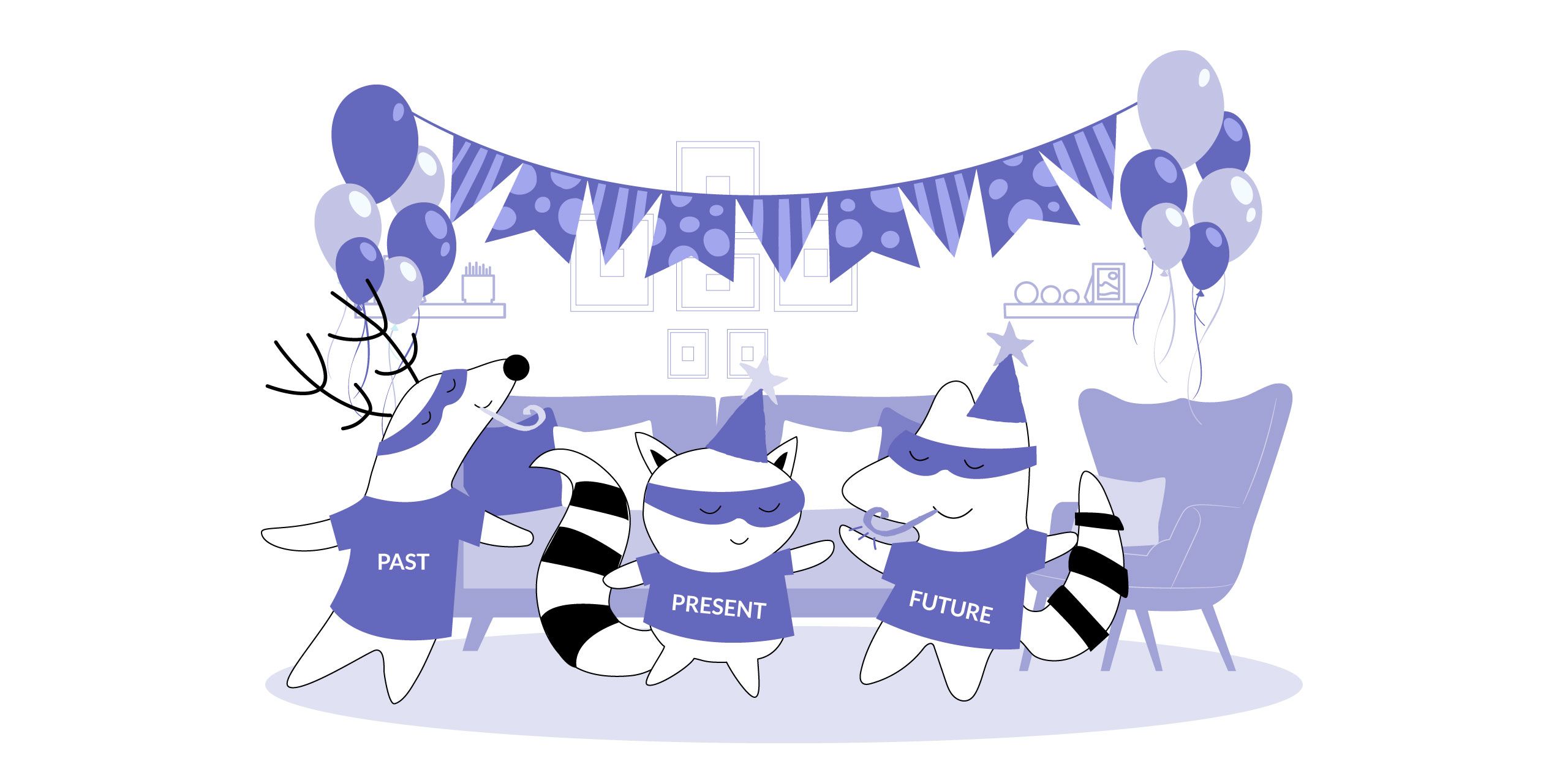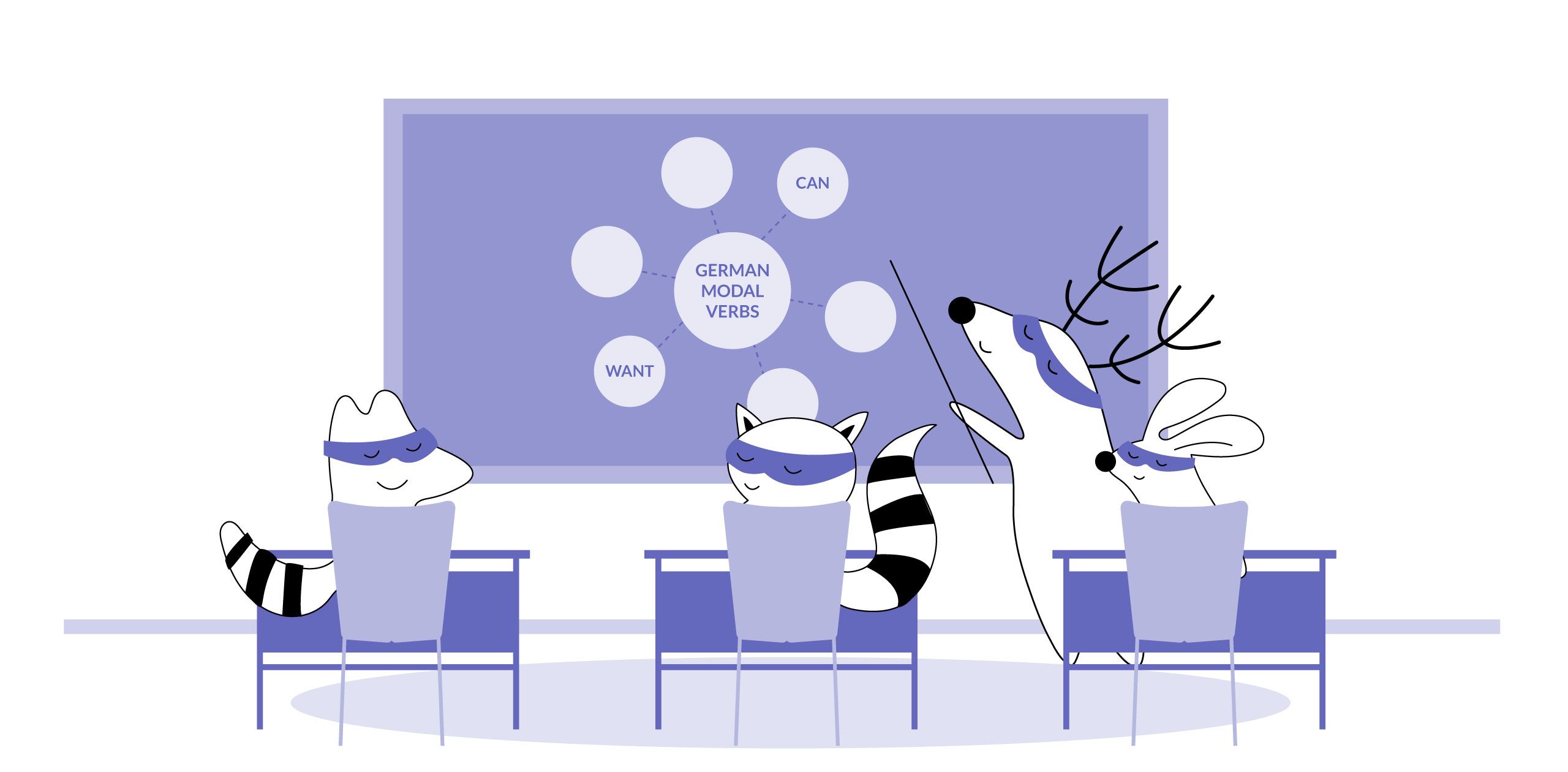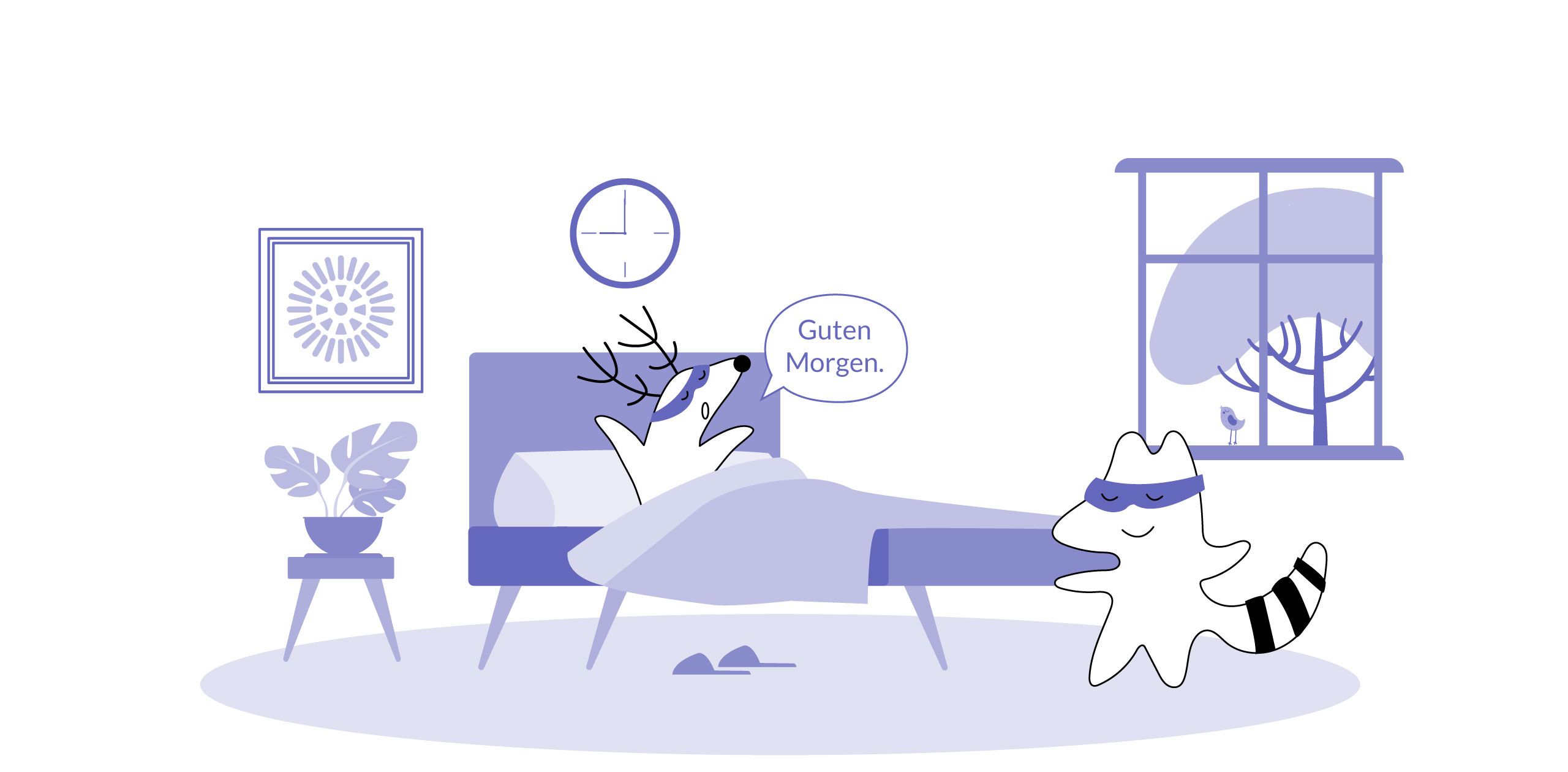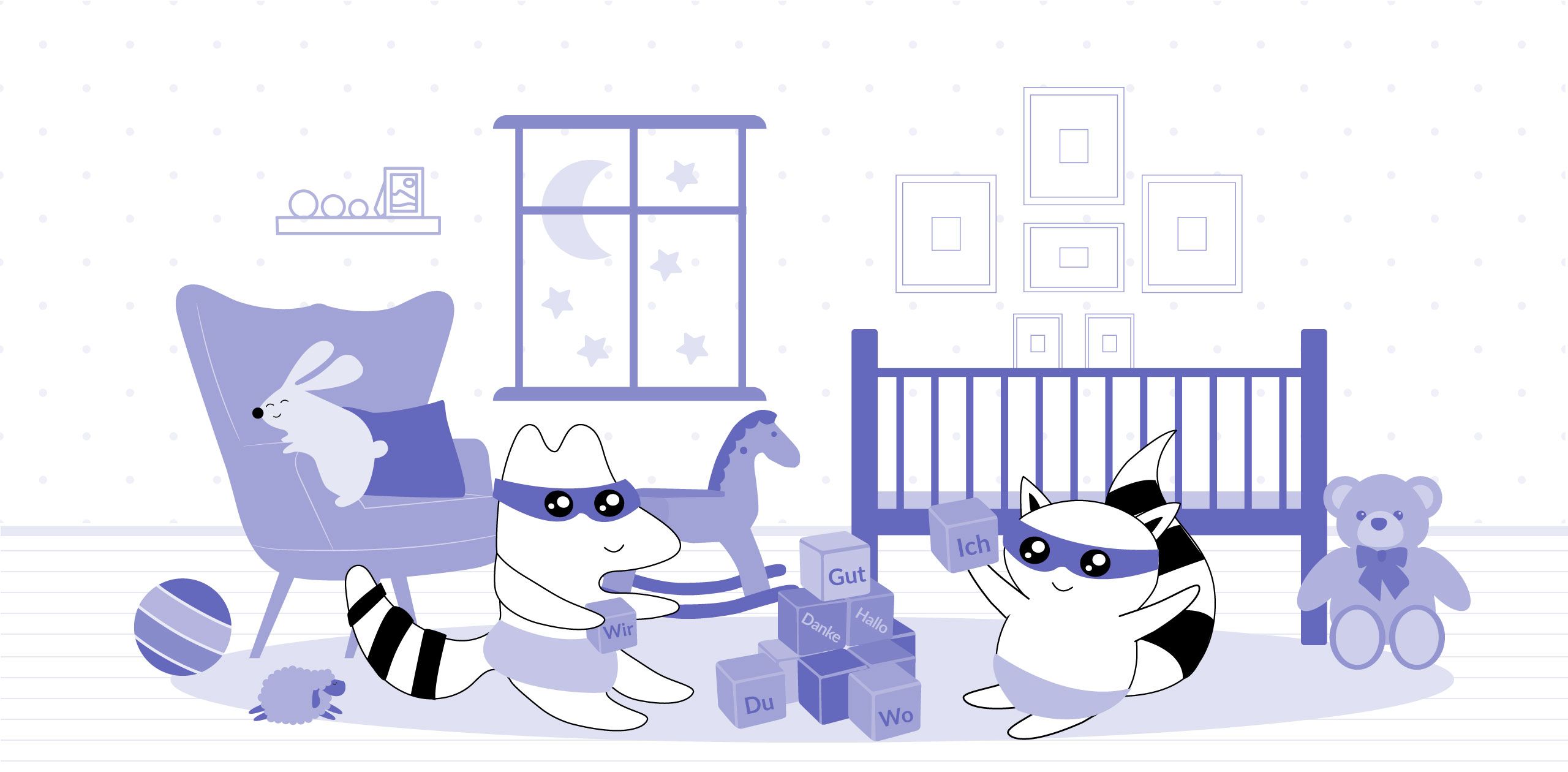
The German language may appear difficult to learn at first because there is a lot of grammar to learn as well as new words with unfamiliar spellings and pronunciations that you have to get used to.
Learning to speak German fluently takes time, and native German speakers can be difficult to understand at first because they may speak German dialects or use complicated language instead of basic German phrases.
Nevertheless, there are numerous German basic words and common German phrases that make language learning easier in the beginning and with which you can start communicating with people right away.
In this post, we want to show you this basic vocabulary and introduce you to some helpful basic German phrases, so that you can keep up with short conversations in German and be able to ask for help when traveling through Germany.
How to Have a Short Conversation
We want to show you an example of a quick conversation that might occur when meeting a German for the first time. In most cases, people ask about names and nationality during first meetings, so let’s prepare for that scenario.
First, a quick reminder for you on how to greet people in German and how to inquire about their well-being. Remember that politeness is an important part of the German culture. You might have read our previous post about saying "Hello" in German, where we showed you that there is a special greeting for each time of the day.
A Quick Reminder: Greetings in German
The common greetings besides "hello" (Hallo) in German are "good morning” and “good evening.”
When you enter the bakery in the morning, you greet people saying "Guten Morgen" (good morning). When you meet people during the day on the street, you say "Guten Tag" (good day); and when the sun is gone you start greeting people with "Guten Abend" (good evening).
Native
Translation
Guten Morgen
good morning
Guten Tag
good day
Guten Abend
good evening
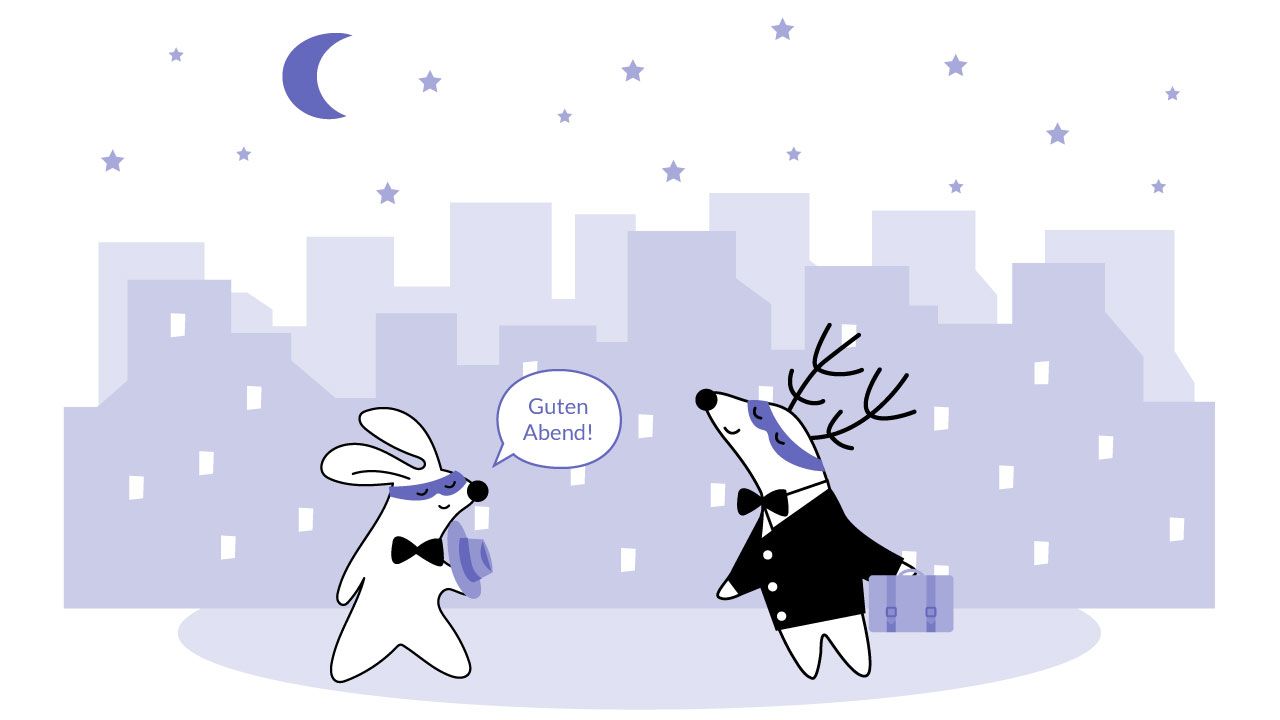
How to Say "How Are You" in German
After greeting the person you meet with "Guten Morgen," "Guten Tag" or "Guten Abend," you can start a conversation asking about the other person's well-being. Depending on the context, you can say, "Wie geht es dir?" (how are you) or "Wie geht es Ihnen?" (formal how are you).
A short version of that phrase you will hear a lot is "Wie geht's?" which can be translated as "what's up?" in English. German people use this shortened term primarily in informal contexts with friends.
To respond to the question and tell the other person how you feel, you can usually say "Mir geht es gut" (I am fine) or "Mir geht es nicht gut" (I do not feel good) in German. Many people also respond with "alles gut" (all good).
Let's recap:
Native
Translation
Wie geht es dir?
How are you?
Wie geht es Ihnen?
How are you? (formal)
Wie geht's?
What's up?
Mir geht es gut.
I am fine.
Mir geht es nicht gut.
I do not feel good.
Alles gut.
All good.
Let's Build a Small Conversation
Now that we have repeated some basic German greetings and gone over the common phrases to ask about other people's well-being, we can learn some new simple German phrases. You may have already mastered the same fundamental skills in another language.
First, you can ask for the other person's name by saying "Wie heißt du?" or "Wie heißen Sie?" (What is your name). The second version is the question for formal contexts. To respond, you can say "Ich heiße ..." (My name is ...).
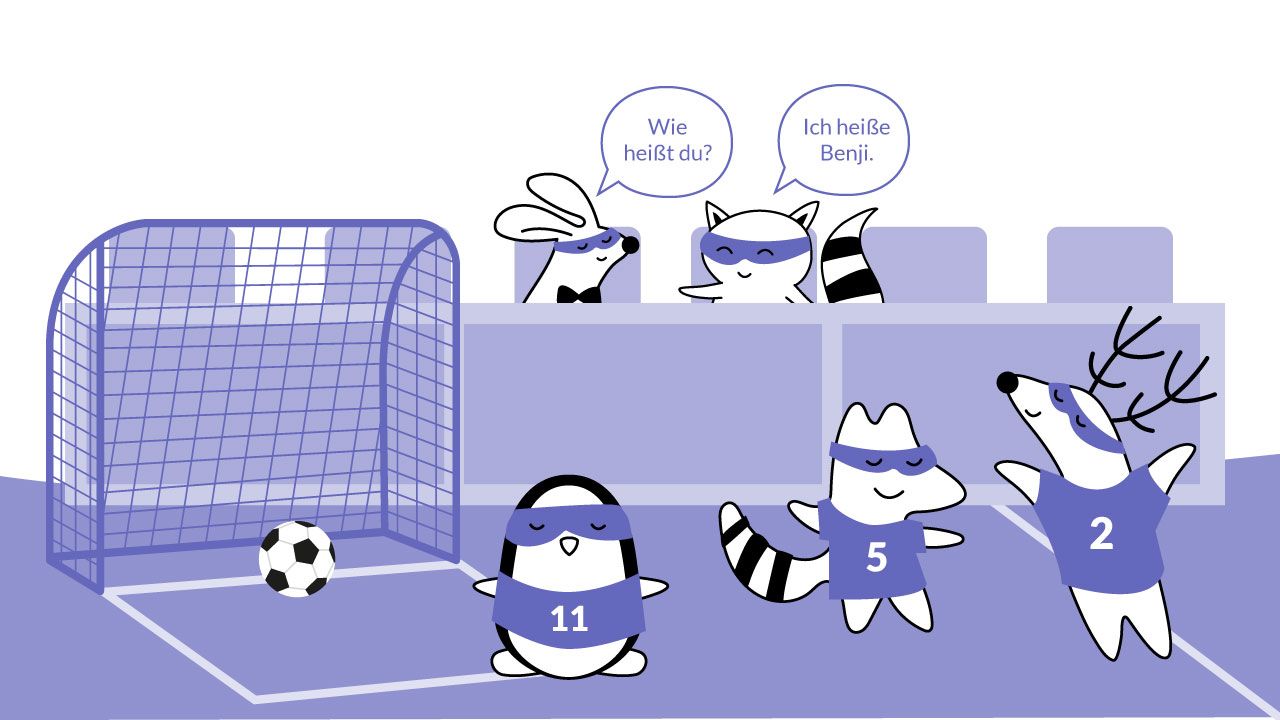
If you are interested in getting to know the other person, you can ask them where they are from by saying "Woher kommst du?" or "Woher kommen Sie?" (Where are you from?). Again, the second phrase is the formal version.
Germans respond with "Ich komme aus ..." (I am from ...). To see how different country names look in German, check out our previous post about that topic. If you want to ask back, you say "Und du?" (and you?) or "Und Sie?" for formal settings.
You can close the conversation with a smile and a typical German farewell, like "Auf Wiedersehen" (goodbye) or "bis bald" (see you soon).
Now, let's get it all together:
Native
Translation
Wie heißt du?
What is your name?
Wie heißen Sie?
What is your name? (formal)
Ich heiße...
My name is...
Woher kommst du?
Where are you from?
Woher kommen Sie?
Where are you from? (formal)
Ich komme aus...
I am from...
Und du?
And you?
Und Sie?
And you? (formal)
Auf Wiedersehen.
Goodbye.
Bis bald.
See you soon.
Example Conversation
Now, let's imagine a full conversation with the most common German words:
A: Guten Tag!
B: Hallo, wie geht es Ihnen?
A: Mir geht es gut und Ihnen?
B: Alles gut, danke. Wie heißen Sie?
A: Ich heiße Stefan Müller, und Sie?
B: Ich heiße Gabi Schneider. Woher kommen Sie?
A: Ich komme aus Hamburg, und Sie?
B: Ich komme aus Berlin. Bis bald!
A: Auf Wiedersehen!
Other Helpful Phrases
Besides the German vocabulary that you need to converse in German, some other German words and phrases can be helpful in various situations. Some typical situations where foreigners need a few German words to express themselves are while shopping or sightseeing.
Let's start with shopping in a German store or at a street market and imagine some typical situations and the common German words that are required to talk about them.
In the Supermarket
If you want to ask for anything, you usually say "Entschuldigen Sie" (excuse me) to a stranger in Germany before going on with your question. If you know what you are looking for while shopping, you can ask directly, "Haben Sie ...?" (do you have ...?).
Here is an example:
Native
Translation
Entschuldigen Sie, haben Sie Bananen?
Excuse me, do you have bananas?
The worker will probably respond with "Ja, hier" (yes, here) and show it to you, or say "Nein, es tut mir leid" (no, I am sorry) if they don't have what you are looking for.
Native
Translation
Ja, hier.
Yes, here.
Nein, es tut mir leid.
No, I am sorry.
If you are not looking for something specific and just want to know about a product that you found, you can use the phrase "Ist das ...?" (is that...?). Look at the example:
Native
Translation
Entschuldigen Sie, ist das Erdbeer-Marmelade?
Excuse me, is that strawberry jam?
If you like it and you want to buy it, you can ask, "Wie viel kostet das?" (how much is it?). Going to a supermarket using these phrases is a good practice for your language learning.
Native
Translation
Wie viel kostet das?
How much is it?
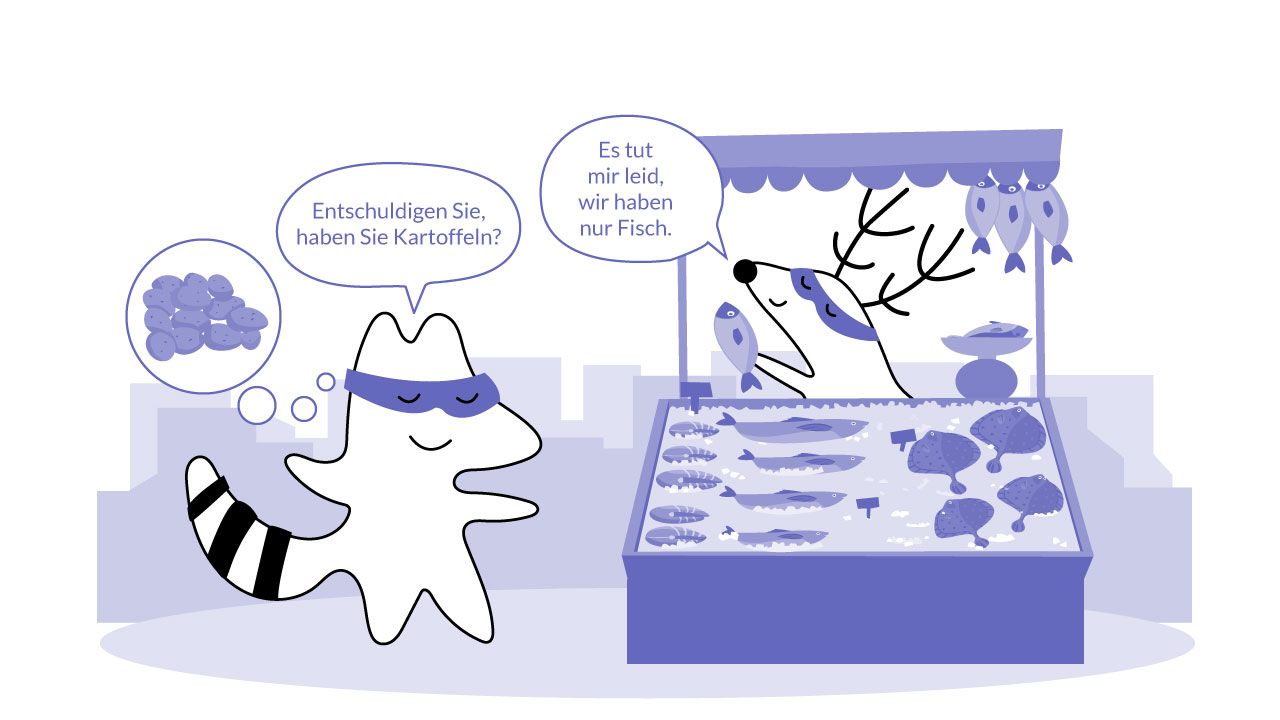
Situations on the Street
When you are walking around in a foreign city, you won’t understand every sign, so you might struggle with finding places you are looking for. In that case, you can talk to a local and ask for help, which is a great opportunity to practice some basic German words and phrases.
As we have mentioned before, you start the conversation with "Excuse me" before you ask "Können Sie mir helfen?" (Can you help me?). If the answer is yes, and you are looking for a location, you can ask "Wie komme ich zu ...?" (How do I get to...?) or "Wo finde ich...?" (Where do I find...?).
Here is an example:
Native
Translation
Entschuldigen Sie, können Sie mir helfen? Wie komme ich zum Markt?
Excuse me, can you help me? How do I get to the market?
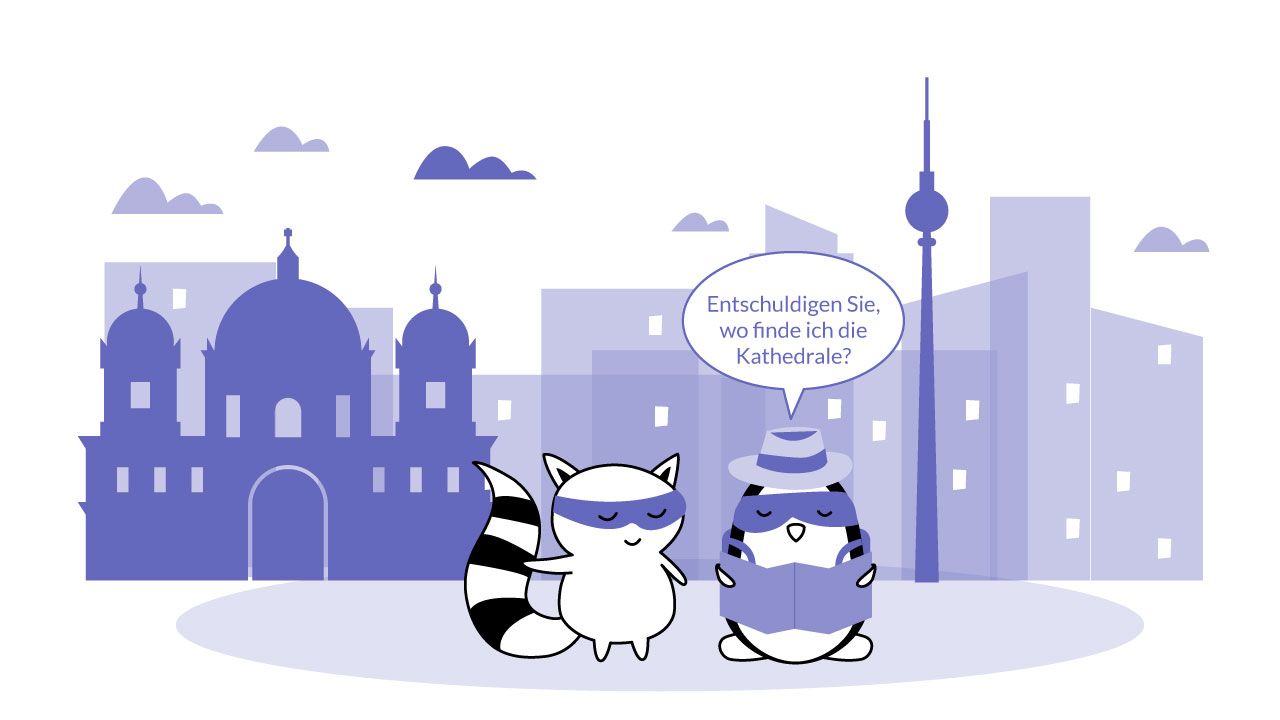
If it is too complicated to explain for you in German, you can always ask "Sprichst du Englisch?" (Do you speak English?) or "Sprechen Sie Englisch?" (the same in a formal context). If you don't understand, you can express that by saying "Ich verstehe nicht" (I don't understand).
Native
Translation
Sprichst du Englisch?
Do you speak English?
Sprechen Sie Englisch?
Do you speak English? (formal)
Ich verstehe nicht.
I don't understand.
Final Thoughts
Now you can hopefully see that with just a few words in a new language, you can already have small conversations and help yourself in a German-speaking country.
To begin learning German, try practicing the common German phrases that you learned from this post in real life. This will allow you to see how much you can already communicate with native speakers.
Of course, you still have many things to learn about German pronunciation and grammar. For that, consider trying the Langster app where you can read short stories in German and acquire new language skills in a fun way. Good luck with your next grocery shopping in Germany - and "bis dann!"







